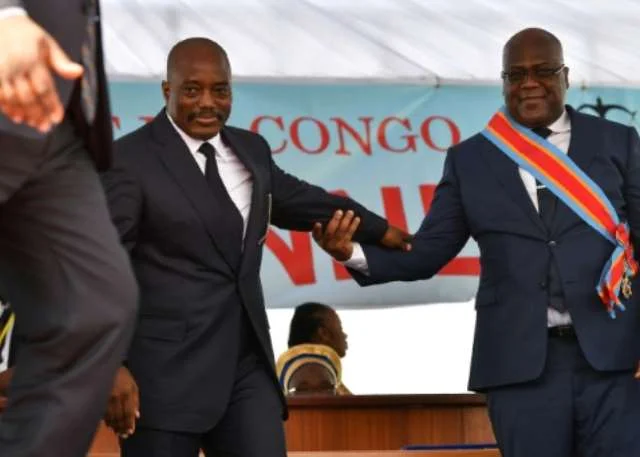Prime Minister Sylvestre Ilunga Ilunkamba of the Democratic Republic of the Congo (DRC) resigned after a National Assembly censure on January 27, 2021, clearing the way for President Felix Tshisekedi to appoint a new prime minister backed by a fresh parliamentary majority.
Ilunga, a key ally of former President Joseph Kabila, stepped down as constitutionally required, citing the evolving political situation, per presidency spokesman Giscard Kusema.
Appointed in May 2019 under a power-sharing deal, Ilunga’s exit ends a tense coalition between Tshisekedi and Kabila’s supporters.
The move strengthens Tshisekedi’s grip on power, following his push for a new government aligned with his “Sacred Union of the Nation” platform.
Tensions and Parliamentary Clashes
The resignation follows years of friction between Tshisekedi and Kabila’s Common Front for the Congo (FCC).
After Kabila’s 18-year rule ended in 2018, Tshisekedi won a controversial election but inherited a pro-Kabila majority in the 500-seat National Assembly, forcing a coalition with 65 ministers, two-thirds from the FCC.
Tensions escalated as Tshisekedi claimed his reform agenda was blocked.
On December 6, 2020, he dissolved the coalition, sparking brawls in Parliament. A censure motion against Ilunga, approved by 367 of 377 present MPs on January 27, 2021, sealed his fate.
Tshisekedi’s New Majority Takes Shape
Tshisekedi’s “Sacred Union of the Nation” now commands 391 legislators, per envoy Senator Modeste Bahati, tasked with forging a new majority. This shift, reported by AFP, allows Tshisekedi to appoint a prime minister aligned with his vision, a significant step after two years of limited control.
Kusema noted it’s “too soon” to name Ilunga’s successor, but the move marks the DRC’s first major political realignment since the 2018 election, the country’s first peaceful transition.
Background of the Power Struggle
Ilunga’s appointment in 2019 stemmed from a deal balancing Tshisekedi’s presidency with Kabila’s parliamentary dominance. Kabila’s FCC held sway, limiting Tshisekedi’s ability to govern.
The 2018 election, marred by fraud allegations, left Tshisekedi reliant on Kabila’s allies, creating a fragile coalition. Tshisekedi’s push to end this arrangement in 2020, citing stalled reforms, led to the censure and Ilunga’s resignation.
The shift aligns with broader calls for change, like @KinshasaWatch, warn of potential unrest if Kabila’s allies resist the new majority’s agenda.
Implications for DRC’s Future
Ilunga’s resignation strengthens Tshisekedi’s authority, enabling a government aligned with his reform goals. However, the transition risks further instability in a nation plagued by conflict and economic challenges.
The “Sacred Union” majority offers a chance for cohesive governance, but Tshisekedi must navigate lingering Kabila influence and public expectations.
As Tshisekedi prepares to appoint a new prime minister, the move could reshape the DRC’s political landscape ahead of future elections, with global observers watching closely.






